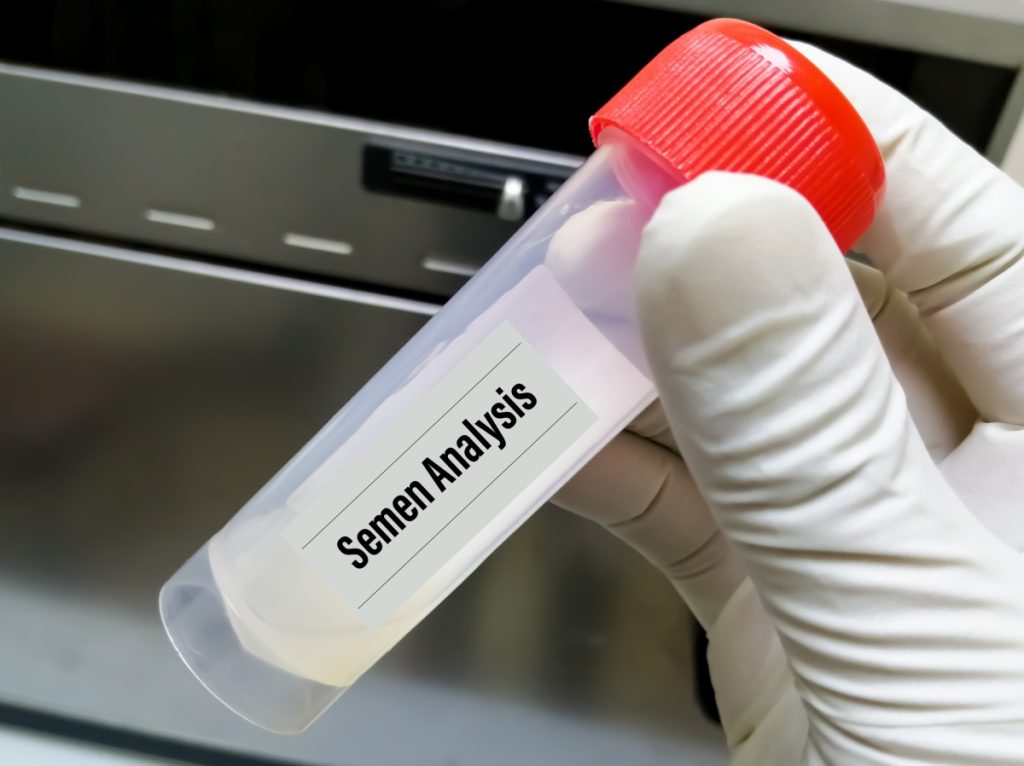
8 Ways Probiotics Benefit Your Health As A Man


8 Ways Probiotics Benefit Your Health As A Man
My goal is that by the end of this article, you’ll have a deeper appreciation for the ways natural probiotics benefit your health as a man. Furthermore, you’ll have more reasons to ingest probiotics daily through foods and smart supplementation.
We’ll explain how probiotics can improve everything from inflammation, mood, reproductive health, testosterone levels, and more. Our goal is to help you look, feel, and perform at your best both now and for the rest of your life.
You should get excited about how probiotics can support better energy, balanced digestion, healthy sexual function, faster recovery, clearer thinking, and much more.

How Probiotics Work In Your Body
Support A Healthy Gut Flora
Probiotics produce substances that help inhibit the growth of bad bacteria while supporting the proliferation of healthy ones. This is crucial as we strive to continuously feed the beneficial bacteria while reducing the number of pathogenic strains.
Reduce Blood Levels Of Bacterial Toxins Like Lipopolysaccharides (LPS)
Studies show that a leaky gut, especially alongside high-fat meals, leads to LPS leaking into the blood and causing chronic low-grade inflammation. The LPS and resulting inflammation also disrupt:
- Metabolism
- Blood sugar control
- Cholesterol levels
- Mood
- And testosterone
Promote A Balanced Immune Response
When the gut is healthy and well populated with beneficial microorganisms, our immune systems are benefitted in multiple ways. Probiotics interact with the lining of the gut to activate numerous immune cells and pathways that encourage a more appropriate immune response.

Combating Oxidative Stress
Numerous studies show that, in many cases, probiotic supplementation correlates with a noticeable decrease in biomarkers for oxidative stress. Scientists are still working to determine how the bacteria deliver these antioxidant benefits. Our internal research team has also detected the antioxidant activity from our probiotic products.
Now that you’ve grasped more about probiotic functions in your body, let’s look at 8 ways probiotics support men’s health.
1. Produce Some Vitamins And Improve Nutrient Absorption
You’ve likely understood that healthy bacteria can aid digestion, but did you realize that specific strains of probiotics are optimized to produce certain vitamins?
Daily consumption of active Lactobacillus acidophilus in a yogurt base improved levels of B-12 and folate after 42 days in subjects who were widely deficient in these essential nutrients. Furthermore, your gut absorbs vitamin D3, iron, zinc, calcium, magnesium, and phosphorus better through probiotics.
This is particularly important if you prioritize the purchase and consumption of organic, high-quality foods. Without a functioning gut, the body may struggle to absorb the nutrients that it needs, allowing the cells to thrive.

2. Hormone Support And Testosterone Levels
It may seem far-fetched that probiotics can support anabolic and sex hormone levels such as testosterone. However, this isn’t hard to see because your body is so interconnected. In a study involving 46 types II diabetic men, researchers collected blood and fecal samples to examine the connection between gut bacteria and testosterone levels. They observed that individuals with higher levels of opportunistic gut pathogens also tended to have lower serum testosterone levels. This illustrates that gut dysbiosis and pathogenic gut bacteria in certain contexts can contribute to poor hormonal balance.
We expect negative downstream effects if the gut-brain axis is disrupted due to microbial imbalances and inflammation. Those effects may include low testosterone and an increased risk for excess body fat and poor blood sugar control. we want to avoid these conditions or improve them if they’re present; probiotics may help with diet and lifestyle changes.
3. Prostate Health and Sperm Count/Quality
Reproductive health is no doubt one of the things we men often care about most when it comes to maintaining vitality. Aside from sex, you want to prevent infertility and prostate health issues, as both steadily rise.
In a study examining the sperm quality of 9 infertile males, probiotic (Lactobacillus rhamnosus CECT8361 and Bifidobacterium longum CECT7347) supplementation for 6 weeks improved sperm motility by six-fold and reduced DNA fragmentation by 1.2 fold. Although this study was small, results suggested that probiotic supplementation may improve sperm quality.
Additional research has indicated that those suffering from hard-to-treat forms of prostate health issues all tend to share a common type of gut bacteria. This points towards the role of what they call a “gut-prostate axis.” Therefore, gut bacteria can influence sexual health, fertility, and prostate health.

4. Oral Health And Its Connection To Heart Health
Teeth and gum health issues are connected to risks of poor heart health. Studies suggest that lactobacilli and bifidobacterium probiotics may help manage gingivitis (gum inflammation) and periodontitis (infection of the teeth). Knowing this provides additional reasons to ensure that bacterial balance is healthy in your gut and throughout your mouth.
In America, heart health issues are responsible for roughly 1 in 4 male deaths, so taking simple steps to reduce your risk makes great sense. This comes down to ensuring an appropriate population of healthy bacteria from the mouth to the colon.
You can support your oral bacteria flora by opening a capsule into your mouth to have with food and by eating fermented foods regularly. Of course, you’ll also need to practice good oral hygiene with daily oil pulling, flossing, and brushing with non-toxic products.
These steps to address oral health may address one aspect of cardiovascular risk. But remember, other factors such as diet, exercise, and stress management are also important for long-term heart health. Remember to keep up with your dental checkups since probiotics alone don’t treat gingivitis.

5. Improved Gut Health
Improving gut health is the most common benefit we typically associate with probiotics, and for a good reason. Probiotics can promote digestive regularity and a balanced inflammatory response of the gut barrier. They also improve gut barrier function and protect against intestinal permeability (often called leaky gut).
Another review showed that probiotics benefited children, adults, and elderly individuals suffering from bowel irregularity. This result corresponds well with my clinical observations, whereby constipated individuals often report feeling more negativity and moodiness. It’s easy to see how when you’re full of crap, you often feel like crap; it’s almost universal in my experience.
It’s remarkable how our body and mind can be perfect reflections of each other in scenarios like bowel irregularity. If you’re ready for change, check out our best probiotic for gut health to help put your gut health challenges behind you!
6. Reduced Inflammation
Poor inflammatory response, especially the persistent variety, impacts most of us daily, whether in small or large ways. Probiotics can exert balancing effects on these excess inflammatory responses, which I’ve observed firsthand to be beneficial in certain cases.
This could point towards a preventative role that probiotics can play in helping us avoid developing these conditions in the first place. It certainly seems likely, given our current understanding of gut health and its role in preventing degenerative conditions.
7. Improved Physical Recovery
If you are an athlete or like to exercise regularly, you’ll be glad to know that probiotic supplementation can improve everything from post-workout fatigue to endurance while training in the heat.
While we’re used to seeing hydration and electrolyte mixes touted for athletic performance benefits, we’re not often told of probiotics improving physical performance. One study noted that when combined with adequate protein, probiotics reduced post-training soreness and increased muscle repair.
Another study showed that male runners could increase their time to exhaustion while decreasing digestive symptoms associated with running to fatigue in hot and humid conditions. These results suggest that probiotics may support the body’s ability to respond to training and thus perform better over time.

8. Better Mood And Brain Health
We know probiotics can help deliver neurotransmitters such as GABA and Serotonin from the gut into circulation. Your gut flora can also produce metabolites that influence how your brain and neurotransmitters work. Some bacteria may improve your mood, while others do the opposite.
Since inflammation can contribute to poor mental health. Probiotics can promote a balanced inflammatory response while supporting neurotransmitters to produce synergistic effects. It sounds like a powerful combination to me, and numerous clients I’ve worked with would attest to these synergistic effects.
A systematic review found that probiotics have promising mood-lifting effects. Such facts support the evidence behind our mood-enhancing supplements that naturally assist the body, belly, and brain to function optimally. Products like Cognibiotics make supporting your gut-brain axis function daily a truly effortless process.
Bringing It All Home
As you can tell, there are many reasons why taking probiotics as a man is a good idea. These miraculous microbes certainly make a difference in physical performance and muscle recovery to gut health benefits or an elevated mood.
Throughout my health struggles over a decade ago, I was lucky to be equipped with probiotics early on. Since then, I’ve been blessed to guide many individuals, particularly men, through health and nutrition. More often than not, probiotics have been an essential piece to help them reclaim their vitality and restore gut function.
Given the epidemic of health issues related to poor gut health, probiotics are crucial for your ability to thrive.
Aim to include a mix of probiotics from supplements and food sources in your diet to support the diversity and resilience of your microbiota. Probiotics may help protect you from the health challenges mentioned and will likely add extra vitality to your days. And for something with such a high degree of safety and many potential benefits, you truly have nothing to lose.
References
- Croci S, D’Apolito LI, Gasperi V, Catani MV, Savini I. Dietary strategies for management of metabolic syndrome: Role of gut Microbiota metabolites. Nutrients. 2021;13(5):1389. doi:10.3390/nu13051389
- Maldonado Galdeano C, Cazorla SI, Lemme Dumit JM, Vélez E, Perdigón G. Beneficial effects of probiotic consumption on the immune system. Ann Nutr Metab. 2019;74(2):115-124. doi:10.1159/000496426
- Ardeshirlarijani E, Tabatabaei-Malazy O, Mohseni S, Qorbani M, Larijani B, Baradar Jalili R. Effect of probiotics supplementation on glucose and oxidative stress in type 2 diabetes mellitus: a meta-analysis of randomized trials. Daru. 2019;27(2):827-837. doi:10.1007/s40199-019-00302-2
- Mohammad MA, Molloy A, Scott J, Hussein L. Plasma cobalamin and folate and their metabolic markers methylmalonic acid and total homocysteine among Egyptian children before and after nutritional supplementation with the probiotic bacteria Lactobacillus acidophilus in yoghurt matrix. Int J Food Sci Nutr. 2006;57(7-8):470-480. doi:10.1080/09637480600968735
- Liu S, Cao R, Liu L, et al. Correlation between gut Microbiota and testosterone in male patients with type 2 diabetes mellitus. Front Endocrinol (Lausanne). 2022;13:836485. doi:10.3389/fendo.2022.836485
- Wang C, Jackson G, Jones TH, et al. Low testosterone associated with obesity and the metabolic syndrome contributes to sexual dysfunction and cardiovascular disease risk in men with type 2 diabetes. Diabetes Care. 2011;34(7):1669-1675. doi:10.2337/dc10-2339
- Valcarce DG, Genovés S, Riesco MF, et al. Probiotic administration improves sperm quality in asthenozoospermic human donors. Benef Microbes. 2017;8(2):193-206. doi:10.3920/BM2016.0122
- Fujita K, Matsushita M, Banno E, et al. Gut microbiome and prostate cancer. Int J Urol. Published online 2022. doi:10.1111/iju.14894
- CDC. Men and heart disease. Centers for Disease Control and Prevention. Published March 8, 2022. Accessed June 17, 2022. https://www.cdc.gov/heartdisease/men.htm
- Gruner D, Paris S, Schwendicke F. Probiotics for managing caries and periodontitis: Systematic review and meta-analysis. J Dent. 2016;48:16-25. doi:10.1016/j.jdent.2016.03.002
- Martínez-Martínez MI, Calabuig-Tolsá R, Cauli O. The effect of probiotics as a treatment for constipation in elderly people: A systematic review. Arch Gerontol Geriatr. 2017;71:142-149. doi:10.1016/j.archger.2017.04.004
- Guo X, Yang X, Li Q, Shen X, Zhong H, Yang Y. The Microbiota in systemic lupus erythematosus: An update on the potential function of probiotics. Front Pharmacol. 2021;12:759095. doi:10.3389/fphar.2021.759095
- Jäger R, Shields KA, Lowery RP, et al. Probiotic Bacillus coagulans GBI-30, 6086 reduces exercise-induced muscle damage and increases recovery. PeerJ. 2016;4(e2276):e2276. doi:10.7717/peerj.2276
- Shing CM, Peake JM, Lim CL, et al. Effects of probiotics supplementation on gastrointestinal permeability, inflammation and exercise performance in the heat. Eur J Appl Physiol. 2014;114(1):93-103. doi:10.1007/s00421-013-2748-y
- Huang R, Wang K, Hu J. Effect of probiotics on depression: A systematic review and meta-analysis of randomized controlled trials. Nutrients. 2016;8(8):483. doi:10.3390/nu8080483
